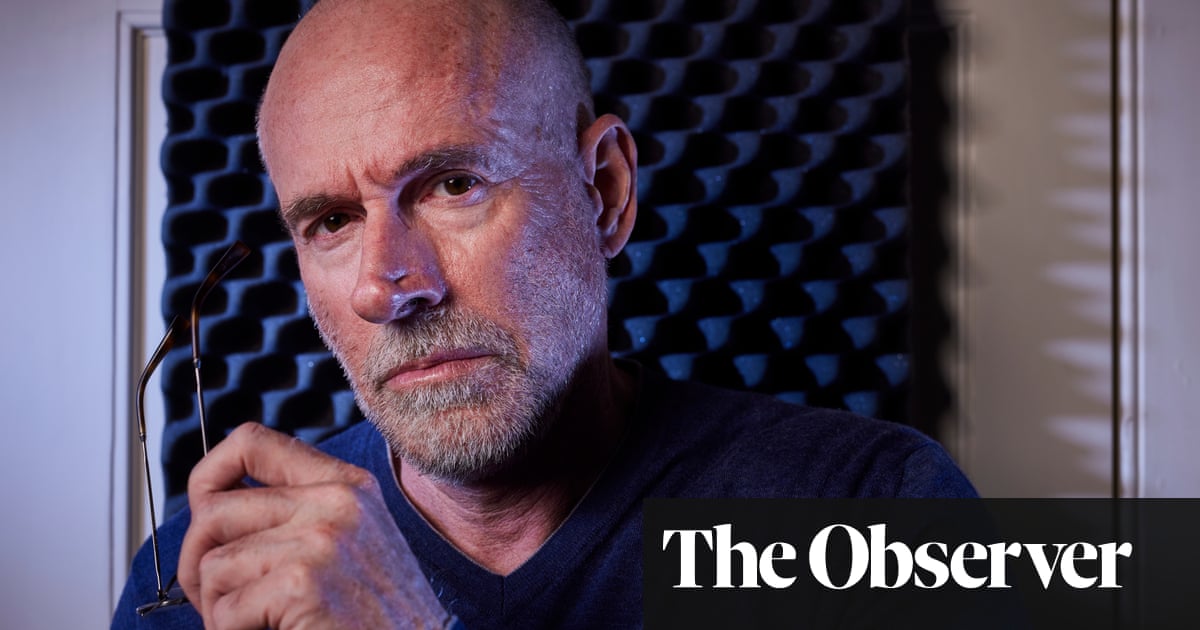Scott Galloway is an American professor of marketing at New York University Stern school of Business. He has founded and sold several tech firms, and served on the board of directors of companies such as the New York Times and Urban Outfitters. With tech journalist Kara Swisher he co-hosts the hugely popular tech and business podcast Pivot. He is a fierce critic of tech companies and their business models and he has written five books, the latest of which is The Algebra of Wealth: A Simple Formula for Economic Security.
You spend a lot of time with wealthy and successful people. Do they have any common habits?
Well, the most common attribute I’ve registered is they were born at the right place at the right time. What I’ve found is that the majority of people’s success is not their fault. And I think something that plagues people, especially tech bros, is they conflate luck with talent. But across those who excel, the thing I have found is that if you want to be successful, you need to collect allies along the way. There’s this cartoon of Monty Burns in The Simpsons, the guy who owns the power plant, who has no friends, who lights cigars with a hundred dollar bill. But what I have found is that really wealthy people are constantly put in rooms of opportunities, because from a young age they’ve acquired allies.
You say that when picking a vocation you shouldn’t follow your passion.
The people telling you to follow your passion are already rich. Your job in your 20s is to find something you’re good at, that you could be great at. When there are too many people in high-romance industries – fashion, sports, nightclubs, restaurants – consumers and companies don’t have to pay you a lot. What I’ve found is if you find something you’re good at with a high employment rate, the accoutrements of mastery of that business – economic security, camaraderie, prestige – will make you passionate about that thing. Anything that provides security for your kids, your parents, and lets you do the incredible things that capitalist society affords will make you passionate about whatever that thing is.
A lot of wealth has transferred and accumulated with older generations who have pulled up the drawbridge and aren’t willing to change the system. Why should the young engage in a structure that’s stacked against them?
In the US we basically have seniors voting, and seniors who vote themselves more wealth. In the US, the two biggest tax deductions are mortgage interest and capital gains. Who owns homes and stocks? People my age. Who rents, who makes all of their money from current income? Young people. Even in Covid we flushed [paid out in stimulus] $5tn in the US, and 60% of payments to individuals were not spent. They were saved and used to pay down debt. Which sent housing prices skyrocketing. It sent stocks skyrocketing. Which is great if you own stocks and houses, if you’re an incumbent. But if you’re an entrant trying to buy a house or hoping some day to start buying stocks yourself, everything’s too expensive. And even worse, we’ve put it on the credit card of the young people. They will pay for it. It’s just a transfer of wealth from the young to the old.
Technology promised to democratise knowledge, make it simpler to build networks and start businesses. But it hasn’t delivered.
It’s a double-edged sword, because 25-year-olds are watching [videos about the psychologist] Daniel Kahneman on TikTok. They have apps that round up their purchases to the nearest dollar and it immediately gets invested in a stock market tracker. And then if they do that, by the time they’re 40, they’re going to have a lot of money. So there’s some amazing things about technology. They’re also, though, fighting some real winds in their face. Technology is constantly trying to seduce you with the perfect offer at the perfect time to take all of your disposable income.
And in addition, for the first time in history, a 30-year-old is making less money than his or her parents were at 30. So these kids are facing a godlike technology that soaks up every disposable dime they have, just when they’re making less money. And the things they need to save and make money, like a house, and/or a degree, all of these things have skyrocketed in costs. So I think, actually, it’s really tough for kids right now.
after newsletter promotion
Why do you think it seems to be young males who are more alienated and disfranchised? You’ve said they are sequestered in their basements, living a no-risk simulation of life.
You have a generation of men who are not going to college, don’t have a male role model, feel shunned by women, and they become more prone to misogynistic content, more prone to nationalism, less inclined to believe in climate change. And some just become shitty citizens. Women are much better without the prospect of a romantic relationship. Women are much better at maintaining friend networks. And friends and relationships are not only important to your mental health, they’re also great guardrails. You’re just less inclined to make a really stupid decision when you have friends in your life.
I relate to this because I think I was one of them when I was a young man. I didn’t have a lot of economic or romantic prospects. If I’d had Reddit and Discord and [cryptocurrency exchange platform] Coinbase and YouPorn and video games, I’m not sure I would have gotten out of the house very much. And if you don’t develop those skills, then at some point, when you’re a 30-year-old who hasn’t engaged in relationships or with the workplace, you become, I don’t want to say unsave-able, but there’s that [Benjamin Franklin] statement that a lot of men die at 25 but are not buried until they are 75. I think we have a lot of those young men walking around right now.
You’ve spent a lot of time in the UK recently. Our politicians always talk about aping the success of Silicon Valley, with projects such as Silicon Roundabout in London, or the Silicon Fen around Cambridge. Are these just kind of deluded visions?
It’s a really interesting question, because if you look at the AI boom, the biggest font of it was in the US, but the second biggest has been in the UK. There’s been a ton of innovation and thought leadership around AI coming out of UK educational institutions, yet they haven’t been able to really monetise it.
And also, my impression of London is, there’s not a lot of organic value creation, that the money is being made serving other people’s wealth that was made elsewhere. The UK has all the underpinnings for the kind of economic growth you could register with tech, and yet Apple is worth more than the entire FTSE 100. So the honest answer is, I don’t have an answer. Whenever I meet anyone who’s rich in London, it’s one of two things: they’re serving other rich people, or they made their money somewhere else.
On Pivot, the podcast you present with Kara Swisher, you spend a lot of time talking about Elon Musk. Will you always be talking a lot about Elon Musk?
God, I hope not. We get a lot of criticism for covering him so much, and yet by far most downloaded segments are when we talk about Elon Musk. He’s a brilliant man. But I’m just sick of talking about him. I feel like a reporter in the 1990s talking about Monica Lewinsky. OK, we get it. Let’s get on to something else.
He’s going to continue to be in the news for a lot of reasons. One is his personal behaviour. He can’t seem to resist acting strange. Two, Tesla is going to go down in value, which will create a lot of headlines, and SpaceX and Starlink will go up in value. So yeah, I don’t think he’s going anywhere.
The Algebra of Wealth by Scott Galloway is published by Torva (£22). To support the Guardian and Observer order your copy at guardianbookshop.com. Delivery charges may apply







